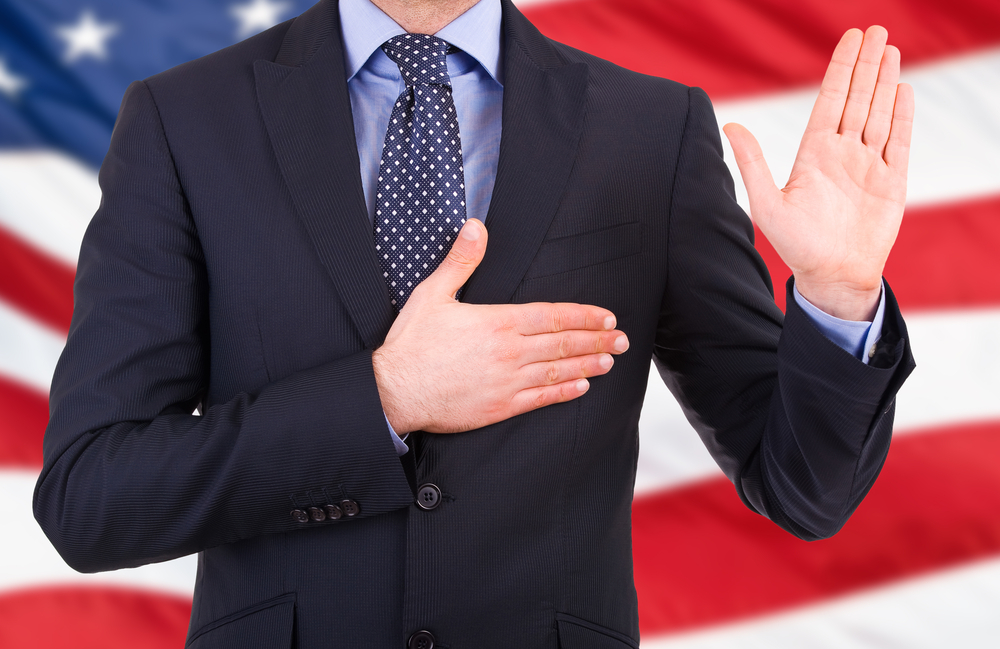
Have you ever listened to an American political leader or other public figure give a stirring speech about pride in country after a major event such as the September 11 attacks, a natural disaster, or a championship victory? Have you ever noticed how many people will stand and cover their hearts with their hands or hats during the national anthem or the Pledge of Allegiance? There’s a sociological theory that a nonsectarian, quasi-religious faith exists in the United States. According to sociologist Robert Bellah, there is a civil religion that many Americans adhere to. As with other faiths, it includes certain fundamental tenets, values, rituals and even holidays. What is this “American Civil Religion” and how does it resemble and differ from other belief systems?
What Is a Civil Religion?
Distinct from a particular church, a civil religion describes the faith of a country as seen through certain symbols, ceremonies, and reinforcing rituals. Coined as far back as the 1700s, a civil faith resembles a traditional faith with concepts of deity, afterlife, punishment and reward. It tends to be practiced by more people in a country, particularly political leaders who are usually not clergy themselves.
What Is the Theory of American Civil Religion?
According to Bellah, Americans generally view documents such as the Constitution, the Declaration of Independence, and the Bill of Rights as sacred texts, and thus the cornerstones of a civil religion. Political sociologist Anthony Squiers backed up this theory, suggesting that these documents are used as symbols in the “politics of the sacred.” They outline what is holy and righteous and profane and immoral for this American civil religion. The theory goes further to note that presidents such as George Washington, political figures such as Benjamin Franklin, and even “martyrs” such as soldiers are revered and given quasi-religious and mythical roles in history.
What Are the Tenets of This Faith?
After surveying over five decades of scholarship surrounding American civil religion, 14 tenets have emerged:
- Filial piety or virtue and honor granted to elders, parents, or ancestors (e.g., “The Founding Fathers”)
- Reverence to sacred texts and symbols such as the Constitution and the flag
- Sanctity of US institutions
- Belief in a God or other deity
- Divine origins for rights
- Freedom granted from a deity, administered by government
- Authority originating from God through government
- Knowledge of God through American experiences
- God as final judge
- Sovereignty of God
- America’s fortune resulting from God’s providence
- America as a global example of hope and virtue
- Death as a sacrifice and rebirth
- Calling of America to a higher purpose
While various historians, sociologists, and social scientists may disagree over the details, many seem to concur that there are a distinct set of beliefs that many Americans follow with a fervor that resembles that of religion.
How Does ACR Compare to Christianity?
Christianity and other faiths provide language, terminology, and metaphors used by ACR. Documents such as the Declaration of Independence use the terms “Creator” and “Nature’s God,” which might appear to be the same as the Christian God. Bellah points out that many early American leaders intentionally used language that would be familiar and unite citizens without establishing one faith for the nation. Whereas established faiths might specifically talk about concepts such as love and salvation, ACR is more oriented around order, justice, and the law. While Christianity is about worship of the Christian God and the Christian Church’s interests, American civil religion is about the interests of the United States. Are you a follower of American civil religion? Perhaps you weren’t aware that it was a thing. Devotion to civil religion, texts, and symbols is powerful and can inspire as much passion as a traditional faith. It’s important to recognize your connection to your beliefs and how they manifest in your thoughts and actions.

